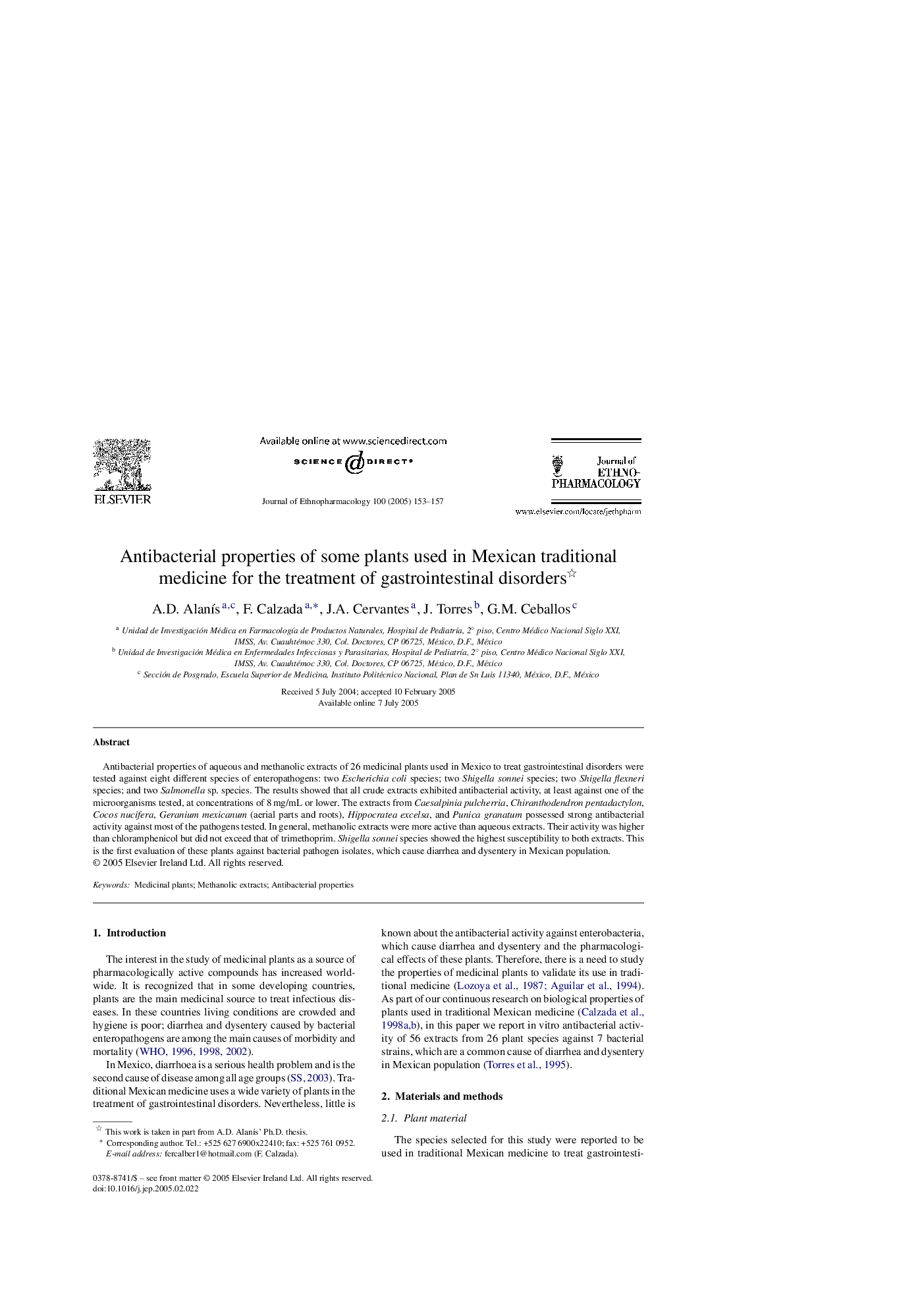| Article ID | Journal | Published Year | Pages | File Type |
|---|---|---|---|---|
| 9010554 | Journal of Ethnopharmacology | 2005 | 5 Pages |
Abstract
Antibacterial properties of aqueous and methanolic extracts of 26 medicinal plants used in Mexico to treat gastrointestinal disorders were tested against eight different species of enteropathogens: two Escherichia coli species; two Shigella sonnei species; two Shigella flexneri species; and two Salmonella sp. species. The results showed that all crude extracts exhibited antibacterial activity, at least against one of the microorganisms tested, at concentrations of 8Â mg/mL or lower. The extracts from Caesalpinia pulcherria, Chiranthodendron pentadactylon, Cocos nucifera, Geranium mexicanum (aerial parts and roots), Hippocratea excelsa, and Punica granatum possessed strong antibacterial activity against most of the pathogens tested. In general, methanolic extracts were more active than aqueous extracts. Their activity was higher than chloramphenicol but did not exceed that of trimethoprim. Shigella sonnei species showed the highest susceptibility to both extracts. This is the first evaluation of these plants against bacterial pathogen isolates, which cause diarrhea and dysentery in Mexican population.
Related Topics
Health Sciences
Pharmacology, Toxicology and Pharmaceutical Science
Pharmacology
Authors
A.D. AlanÃs, F. Calzada, J.A. Cervantes, J. Torres, G.M. Ceballos,
